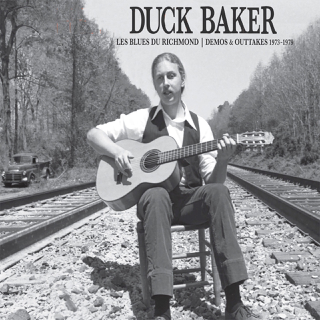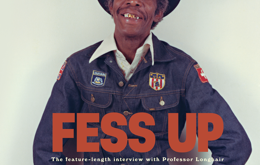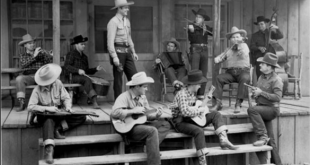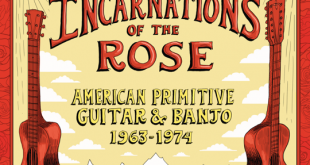Tompkins Square is a boutique indie label that’s reissued recordings by several of the American Primitive guitarists of the 1960s and `70s. Its latest release features an artist of the era if not the idiom, and since the recordings are new to vinyl and CD, we can’t call it a reissue. It’s Duck Baker: Les Blues Du Richmond: Demos and Outtakes 1973-1979 (TSQ 5500). Vinyl lovers can get it on Record Store Day, April 21. The CD will be released the following Friday, April 27.
Baker is an intriguing outlier among the folk-based acoustic guitarists of his era. He had an ear for folk and blues but also jazz, including avant-garde jazz. He credits a Richmond, VA piano player, Buck Evans, with inspiring him to arrange ragtime piano tunes for guitar, something for which Baker had a real knack. A local record store owner, Marty Gary, helped the 23-year-old make a demo tape comprised of four instrumentals and two songs. Forty-five years later, we can now hear its contents.
In the liner notes, Baker writes: “A few years ago, Marty Gary got in touch with me to say that he had digitized the tapes of that 1973 demo session and gave me a copy, and then when Josh Rosenthal at Tompkins Square asked if I might have any early, previously unreleased recordings, I was able to say that I did, indeed. There are even a couple of things that I never recorded again.” One, the tongue-in-cheek “Homage to Leadbelly,” mixes bits of “Midnight Special” with West Side Story’s “I Feel Pretty” and improvisations that reflect Baker’s penchant at the time for free jazz. It may be a blend that doesn’t completely gel, but it reflects Baker’s sense of humor and yen for taking creative chances.
One chance he took was playing a nylon string guitar. That wasn’t the norm among the era’s folk-based guitarists who wanted to be noted for their chops: it was generally steel strings all the way. Baker’s fingerpicking was not demure: he applied a fat right thumb and snapped strings, so his choice of instrument seemed incongruous. But it somehow fit his approach perfectly, and his performance of Scott Joplin’s “Maple Leaf Rag,” the album’s opener, proves authoritatively that he knew what he was doing.
Baker’s vocals weren’t on a par with his picking, but his idiosyncratic song choices for his demo surely stood out. He croons a couple of 1920s vintage dance craze anthems, “Charleston Mad” and “Doing the Raccoon.” They’re a lot of fun, though there’s not much singing here.
The other vocal, “That Rhythm Man,” finds Baker joined by violinist Mike Piggot and bassist Spibey in a breezy performance that evokes the Gypsy jazz of the Quintette du Hot Club de France. Baker still holds forth on nylon strings, though on the album’s remaining five tracks he’s switched to steel.
The first six tracks here came from Baker’s 1973 Richmond demo and the remaining eight, including “That Rhythm Man,” are outtakes recorded in London between 1977-79 for the Kicking Mule label. These range from fingerstyle arrangements of jazz standards to Irish fiddle tunes, reminders of the diversity of material Baker brought to the stage whenever I saw him perform in the early 1980s. I’d not heard of him for some time, so it’s good to know he’s still around and that his music is getting out again.
In the album’s notes, Baker writes: “…I was trying to expand on folk material in a way that traditional folk musicians would not have done, using an approach that was meant to be true to the tradition that I was drawing on.” He didn’t take himself too seriously while doing that, and that’s an approach worth revisiting.
 Baja Review A community newspaper serving Ensenada, Valle de Guadalupe, and Rosarito in Northern Baja California
Baja Review A community newspaper serving Ensenada, Valle de Guadalupe, and Rosarito in Northern Baja California





